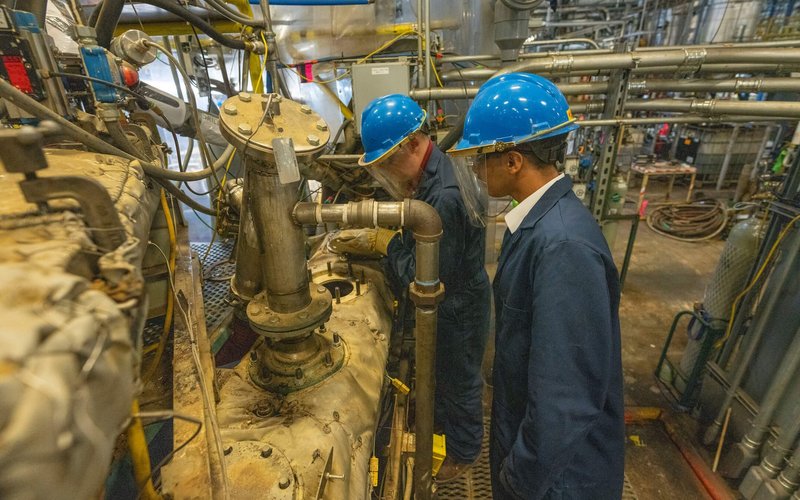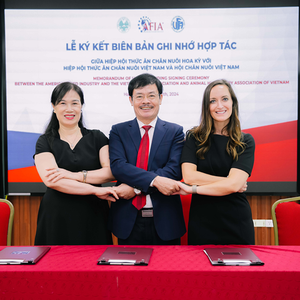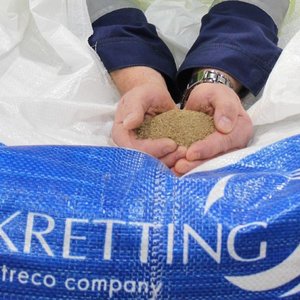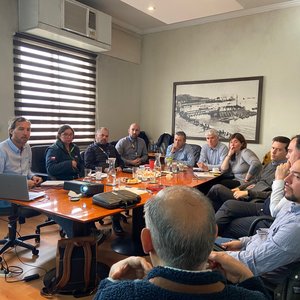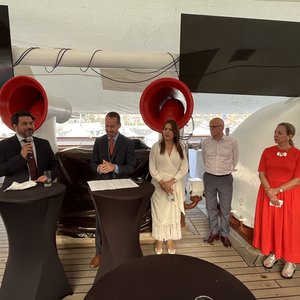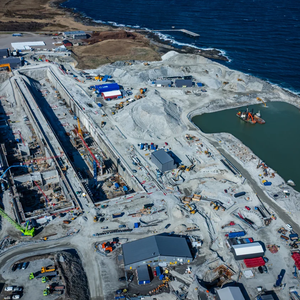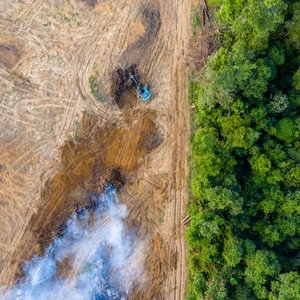The UMaine Forest Bioproducts Research Institute (FBRI) and Aquaculture Research Institute (ARI) have been awarded a USD 10 million U.S. Department of Agriculture (USDA) grant for their Sustainable Wood to Fuel and Fish Feed for Strengthening the U.S. Bioeconomy project, (SWF3). Collaborators include the University of Massachusetts Lowell (UMass Lowell), USDA Agricultural Research Service (ARS) and Arbiom.
Low-quality wood contains both organic compounds that can be converted into fuel and sugars that can be fermented into proteins for fish feed. The sugars, lignin and other biomass components from the wood will be separated by FBRI and converted to protein by Arbiom using their proprietary microbial fermentation process. The proteins will then be formulated into fish feed by ARS in collaboration with ARI, which will conduct salmon growth and digestibility studies.
“The Aquaculture Research Institute is thrilled to be part of this groundbreaking project,” said ARI director Debbie Bouchard. “By converting low-quality wood into an ingredient for sustainable fish feed, we’re not only addressing a critical need in aquaculture but also enhancing the economic value of Maine’s forests. This innovative approach will pave the way for more resilient and sustainable aquaculture practices.”
“The Forest Bioproducts Research Institute is excited to lead this interdisciplinary project,” said FBRI director Clayton Wheeler. “The new funding is key to developing creative and sustainable markets for underutilized forest biomass while prioritizing the inclusive values that are important to advancing equitable rural development in Maine.”
The project is part of a National Institute of Food and Agriculture (NIFA) program, which provides funding to advance sustainability in agricultural systems. It builds on UMaine’s expertise and capabilities in both forest biofuels and Atlantic salmon aquaculture research.
In addition to the fuel and fish feed production research, FBRI and ARI will develop undergraduate- and graduate-level courses based on the findings from the SWF3 projects for a wide range of fields, including chemical engineering, artificial intelligence, fish nutrition, forest resources, economics, microbiology and sustainability. Researchers will also develop educational activities for K-12 learning in these fields in collaboration with the University of Maine Cooperative Extension.


